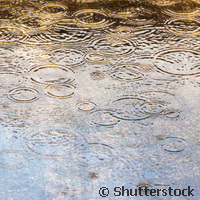Forging links between climate change scientists and policymakers
Adapting to climate change is one of the most important issues facing society in the 21st century. As such, climate change impact assessment and adaptation have become important areas of scientific research and policy development. International political agreements, commitments and initiatives now act as scientific and technological drivers, shaping research activities. At the same time, unprecedented levels of interaction between scientists and policymakers have developed. Scientific experts are being called upon to advise and enable informed decision making. But linking science and politics is not a straightforward affair. The EU-funded project CIRCLE-2 ('Climate impact research and response coordination for a larger Europe - 2nd generation ERA-NET - Science meets policy') is working to support a common European research agenda and share good practices on adaptation with national and European decision makers. The project aims to make sure climate-change research addresses real national and European policy needs by developing a European network to fund research and share knowledge on climate adaptation. The project is also promoting long-term cooperation among national and regional climate change funding and research programmes. The project, led by the Foundation of the Faculty of Sciences of the University of Lisbon, began by analysing the available knowledge on climate change impacts, vulnerability and adaptation. The project also explored opportunities for long-term transnational research cooperation. They looked at ways to develop a common EU agenda focusing on climate adaptation research and policy. The project analysed how joint funding calls and other financing programmes can incorporate the needs of both funding organisations and government authorities and how they can best respond to real scientific and policy issues. Several joint initiatives and joint calls for research projects were launched. Finally, CIRCLE-2 aims to help researchers share knowledge and experiences. The project organised several workshops, some in cooperation with other initiatives and organisations. Project partners say these had a clear impact on climate-change research and policy developments in Europe. Climate change research is a vibrant field, with new national programmes emerging to replace older ones. Owing to this dynamic state of affairs, efforts to coordinate research such as those delivered by CIRCLE-2 come at just the right time. The project has created a seamless network of 34 institutions from 23 countries where knowledge on good practices in research programming and funding can be shared. This network is closely collaborating with the EU Climate joint programming initiative (JPI) with the goal of reinforcing the links between national research activities in this area in EU Member States. CIRCLE-2 received around EUR 2 million in funding from the EU. The project is due to end in April 2014.For more information, please visit: CIRCLE-2 http://www.circle-era.eu Project factsheet Foundation of the Faculty of Sciences of the University of Lisbon http://www.fc.ul.pt Laboratory for Systems, Instrumentation and Modeling in Science and Technology for Space and the Environment http://www.sim.ul.pt
Countries
Austria, Belgium, Germany, Estonia, Greece, Spain, Finland, France, Hungary, Ireland, Israel, Italy, Netherlands, Portugal, Sweden, Türkiye, United Kingdom



